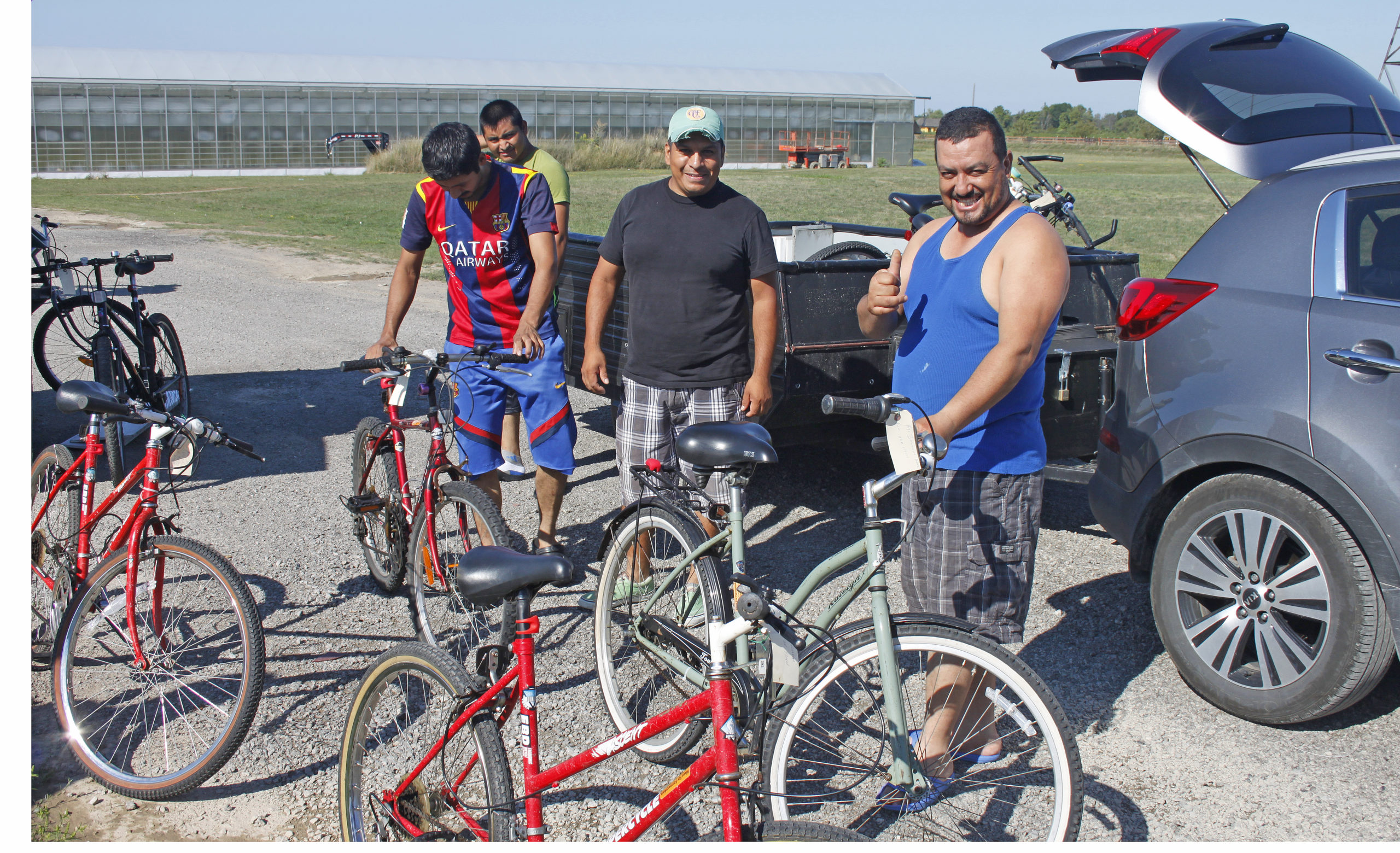For the average migrant worker, the labour can be back-breaking, especially for those in farmers’ fields and greenhouses. Giving months of their time each year to help farmers, migrant workers are a vital part of every growing season in Ontario.
2016 marked the 50th anniversary of Canada’s Seasonal Agricultural Worker Program which brings 30,000 labourers annually from Mexico, Jamaica and other Caribbean countries to reap and sow our crops.
Many are Spanish speaking — about 600 of them in the Grimsby, Lincoln and West Lincoln area. You can see them lined up for a free meal put on by the people of St. Alban’s Beamsville.
Many work 10-12-hour days for 5-8 months to support their families back home.
During that time, they can go to a Community Centre where they see a Spanish-speaking volunteer nurse or doctor. They can get free winter clothing, a bicycle, helmet and vest. They can participate in a Spanish worship service, access free WIFI and use the free Internet Café to call families in their home country. They can participate in English classes, socialize and get their taxes done.
For three years, the Anglican Foundation has funded this amazingly important work with grants totalling $30,000.
For migrant workers — working long and laborious days — all these things are a great gift. And where would Niagara’s economy be without its farms, wineries and farm supply industries?
Dr. Jennifer Connors is a doctor who volunteers her time to treat patients in St. Alban’s basement. Nearing the end of her career, and knowing a bit of Spanish, Jennifer thought she could help. And helping is exactly what she is doing. She is available at the church on Sundays for workers to come, be treated and if need be, fill their prescriptions. “I’m just nearing the end of my career,” says Jennifer, looking to transition into retirement. “I think you get out of life what you give back.” It brings tears to even the scroogiest among us.
When the Reverend Javier Arias arrived in Beamsville from Columbia, he had no idea there were migrant workers in Niagara Diocese where he would be serving. He quickly realized they needed transportation, coats, toiletries, food and help learning English. “As migrant farm workers, they’re not really recognized,” says Javier. He and the people of St. Alban’s know differently. These workers are a vital part of Canada’s economy.
So why are these workers lined up in Beamsville?
To receive the love of Christ and the respect and appreciation of their brothers and sisters as they come to reap and sow our crops, while their families far away wait for their return.
The Reverend Canon Judy Rois is Executive Director of the Anglican Foundation of Canada

Resurrection of Hope in Thundering Waters